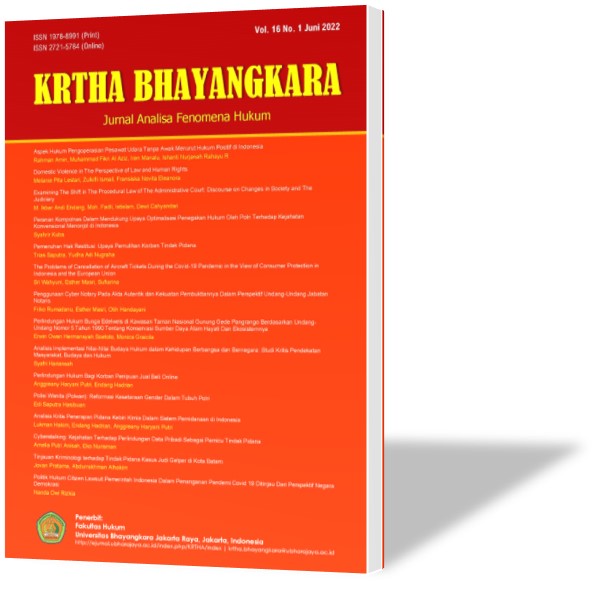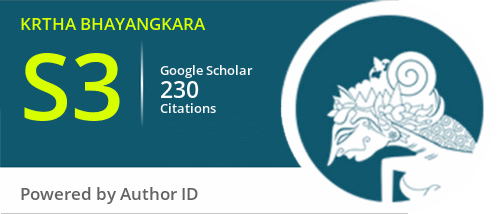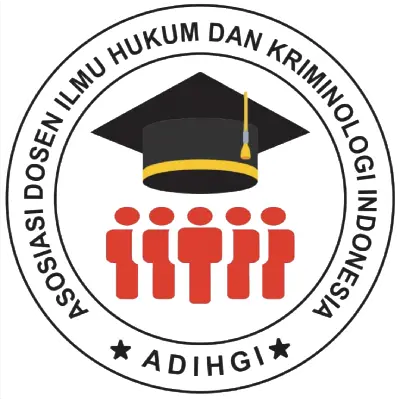Paradigma Kedaulatan Pangan Sebagai Landasan Penanggulangan Krisis Pangan Global Dalam Perspektif Negara Hukum Kesejahteraan
DOI:
https://doi.org/10.31599/krtha.v16i2.1220Keywords:
food sovereignty, welfare state, G-20 PresidentAbstract
The Indonesian Constitution stipulates in Article 28H paragraph (1) as follows: “everyone has the right to live in physical and spiritual prosperity, to live and to have a good and healthy environment, and to have the right to health services”. The principle of a prosperous life as the right of every person is further regulated in Article 9 paragraph (2) of Law Number 39 of 1999 which stipulates as follows ” everyone has the right to live in peaceful, safe, peace, happy, physical and spiritual prosperity. One aspect of supporting a prosperous life is food. Food is one of the basic human needs that must be met in order to live a prosperous life. The Indonesian state and nation really understand the urgency of food in human life so that they can live in prosperity. Based on the idea of the urgency of food in a prosperous human life, Indonesia stipulates Law No. 18 of 2002 on Food. The Indonesian state is determined to achieve the ideals of "food sovereignty" as an ideal condition that is expected to support the welfare of the Indonesian nation. The Indonesian people are determined to be sovereign in the food sector in the sense of having the ability to determine food policies that guarantee the right to food so that the Indonesian people can live in prosperity. However, in reality, the world is experiencing a food crisis at this time. The reality of the food crisis that is hitting the world at this time is one of the agendas promoted by President Joko Widodo, who serves as the G-20 Presidency, as one of the main agendas of the G-20 meeting in the months ahead. Can President Joko Widodo as the G-20 Presidency garner the agreement of G-20 countries to cooperate and work together to overcome the world food crisis as one of the main agendas of the G-20 meeting? This research uses juridical-normative research methods and other research methods that are deemed necessary and can support the success of the research. According to the author, as the G-20 Presidency, President Joko Widodo will be able to forge an agreement with G-20 member countries to work together and work together to overcome the world food crisis that is happening at this time. The reason is that all G-20 member countries and all countries in the world will be affected by the global food crisis in due time, so if they do not want to be affected by the global food crisis, all G-20 member countries and the other countries on the surface of the earth must work together to tackle the global food crisis. All G-20 member countries are advised to take concrete steps to overcome the food crisis in their respective countries as has been done by Indonesia as stated in President Joko Widodo's program.
References
A. Buku
A. Ahsin Thohari, Hak Konstitusional Dalam Hukum Tata Negara. Jakarta: Erlangga,2016.
Budi Winarno. Melawan Gurita Neoliberalisme. Depok: Penerbit Erlangga, 2010.
De Angelis, Massiomo, Toby Carroll, Tania Murray dan Ben Fine, Petaka Neoliberalisme Membongkar Proyek Pembangunan Sosial Sebagai Kuda Troya Neoliberal disunting oleh Muhtar Habibi. Malang: Intrans Publishing, 2016.
Jimly Asshidiqqie, Komentar Atas Undang-undang Dasar Negara Republik Indonesia. Jakarta: Sinar Grafika, 2009), hlm. 121.
Khudzaifah dkk. Genealogi Negara Hegemoni Koorporatokrasi Negara Hukum Kesejahteraan Indonesia. Yogjakarta: Genta Publishing, 2020.
Nur Sayyid Santoso Kristeva. Kapitalisme, Negara dan Masyarakat. Yogjakarta: Pustaka Pelajar, 2015.
Padmo Wahyono. Indonesia Negara Berdasarkan Atas Hukum. Jakarta: Ghalia Indonesia, 1986.
Revrisond Baswir. Bahaya Neoliberalisme. Yogjakarta: Pustaka Pelajar, 2016.
Sibuea, Hotma P. dan Dwi Seno Widjanarko. Dinamika Negara Hukum. Depok: Erlangga, 2020.
Sugeng, Adi Nur Rohman dan Elfirda Ade Putri. Kedaulatan Pangan Dalam Perspektif Hukum dan Keamanan Manusia. Yogjakarta: Bintang Pustaka Madani. 2021.
Triwibowo Yuwono (ed.). Pembangunan Pertanian: Membangun Kedaulatan Pangan. Yogjakarta: Gadjah Mada University Press, 2022.
B. Undang-undang Dasar dan Undang-undang
Negara Republik Indonesia. Undang-undang Dasar Negara Republik Indonesia Tahun 1945.
Negara Republik Indonesia. Undang-undang Tentang Hak Asasi Manusia, Nomor 39 Tahun 1999.
Negara Republik Indonesia. Undang-undang Tentang Pangan, Nomor 18 Tahun 2012.
KRTHA BHAYANGKARA | Volume 16 Number 2, December 2022
Paradigma Kedaulatan Pangan Sebagai Landasan Penanggulangan Krisis Pangan Global …
C. Artikel Jurnal
Ahmad Hadi, Budiman Rusli dan Mohammad Benny Alexandria, Dampak Undang-undang Nomor 12 Tentang Pangan Terhadap Ketahanan Pangan Indonesia. Jurnal Ilmiah Responsive, Volume 2, Nomor 4 Desember 2019.
Galuh Prita Dewi dan Ari Mulianta Ginting, Antisipasi Krisis Pangan Melalui Kebijakan Diversifikasi Pangan (Anticipate Food Crisis through Food Diversification Policy), Jurnal Ekonomi Kebijakan Publik, Bengkulu, Volume 3 Nomor 1 Tahun 2012.
Hotma P. Sibuea, Konsekuensi Yuridis Proklamasi Kemerdekaan Bagi Bangsa Indonesia Dalam Kehidupan Berbangsa dan Bernegara. Jurnal Law Review, Fakultas Hukum Universitas Pelita Harapan, Tangerang, Volume XII No.3 Maret 2013. hlm. 322.
Josef P. Widyaatmadja. Kebangsaan dan Globalisasi Dalam Diplomasi. Yogjakarta: Kanisius, 2015.
Sulfitri Hs Mudrieq, Problematika Krisis Pangan Dunia dan Dampaknya Bagi Indonesia, Universitas Tadulako, Jurnal Academica Fakultas Ilmu Sosial dan Ilmu Politik, Volume 5 Nomor 02, Oktober 2013, hlm. 4.
D. Internet
Sri Mulyani sebut krisis pangan Global berpotensi berlanjut hingga 2023.” Yohana Artha Uly. http://money.kompas.com/read/2022/07/15/163000326/sri-mulyani-sebut-krisis-pangan-global-berpotensi-berlanjut-hingga-2023, diakses pada tanggal 8 Agustus 2022.
E. Publikasi Lain
Harian Kompas Senin, Tanggal15 Agustus 2022 “Wujudkan Kesejahteraan Petani,” hlm. 10




































